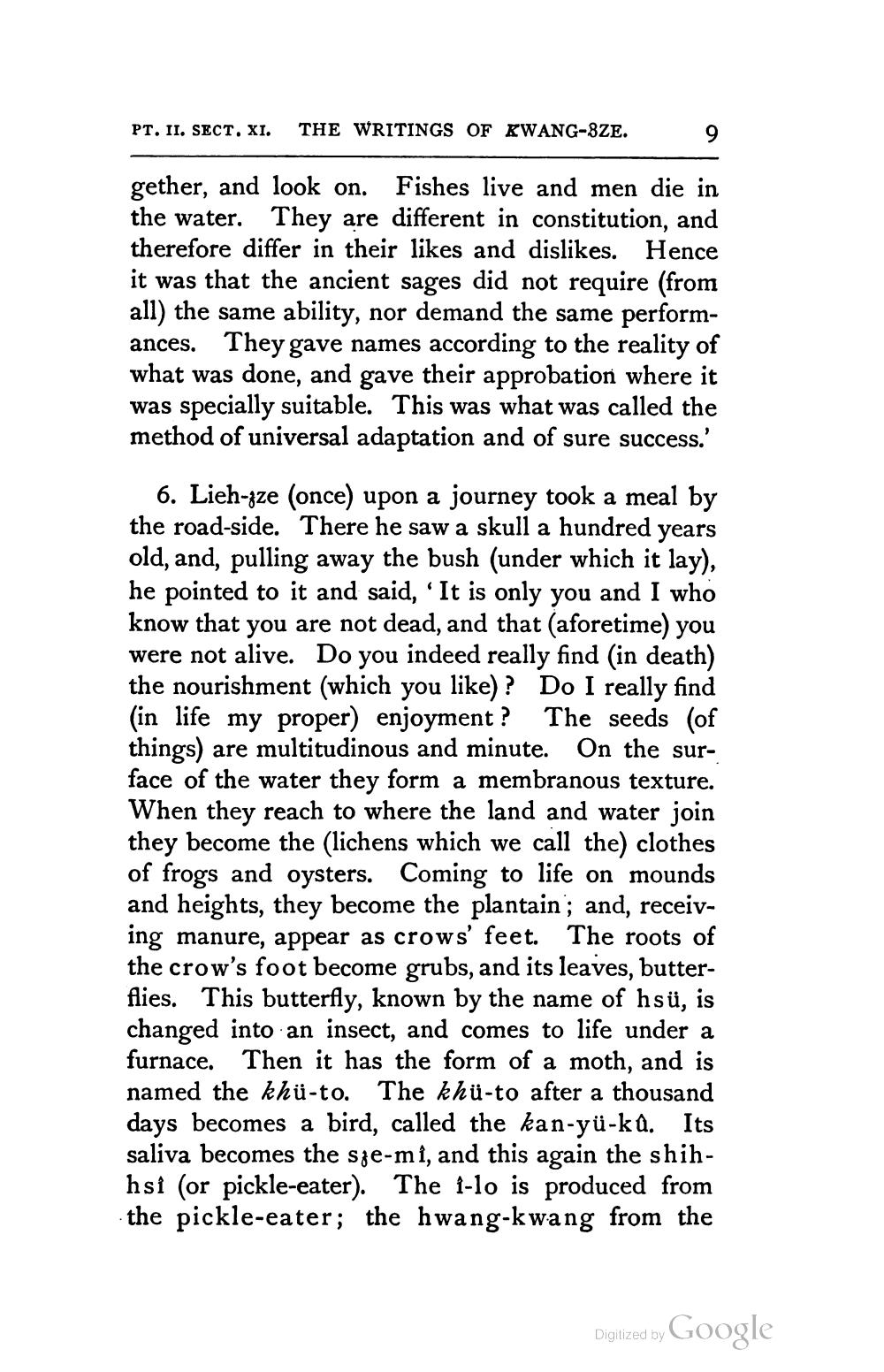________________
PT. II. SECT. XI.
THE WRITINGS OF KWANG-SZE.
gether, and look on. Fishes live and men die in the water. They are different in constitution, and therefore differ in their likes and dislikes. Hence it was that the ancient sages did not require (from all) the same ability, nor demand the same performances. They gave names according to the reality of what was done, and gave their approbation where it was specially suitable. This was what was called the method of universal adaptation and of sure success.'
6. Lieh-zze (once) upon a journey took a meal by the road-side. There he saw a skull a hundred years old, and, pulling away the bush (under which it lay), he pointed to it and said, 'It is only you and I who know that you are not dead, and that (aforetime) you were not alive. Do you indeed really find (in death) the nourishment (which you like)? Do I really find (in life my proper) enjoyment? The seeds (of things) are multitudinous and minute. On the surface of the water they form a membranous texture. When they reach to where the land and water join they become the (lichens which we call the) clothes of frogs and oysters. Coming to life on mounds and heights, they become the plantain; and, receiving manure, appear as crows' feet. The roots of the crow's foot become grubs, and its leaves, butterflies. This butterfly, known by the name of hsü, is changed into an insect, and comes to life under a furnace. Then it has the form of a moth, and is named the khü-to. The khü-to after a thousand days becomes a bird, called the kan-yü-ka. Its saliva becomes the sje-mi, and this again the shihhsi (or pickle-eater). The f-lo is produced from the pickle-eater; the hwang-kwang from the
Digitized by Google




